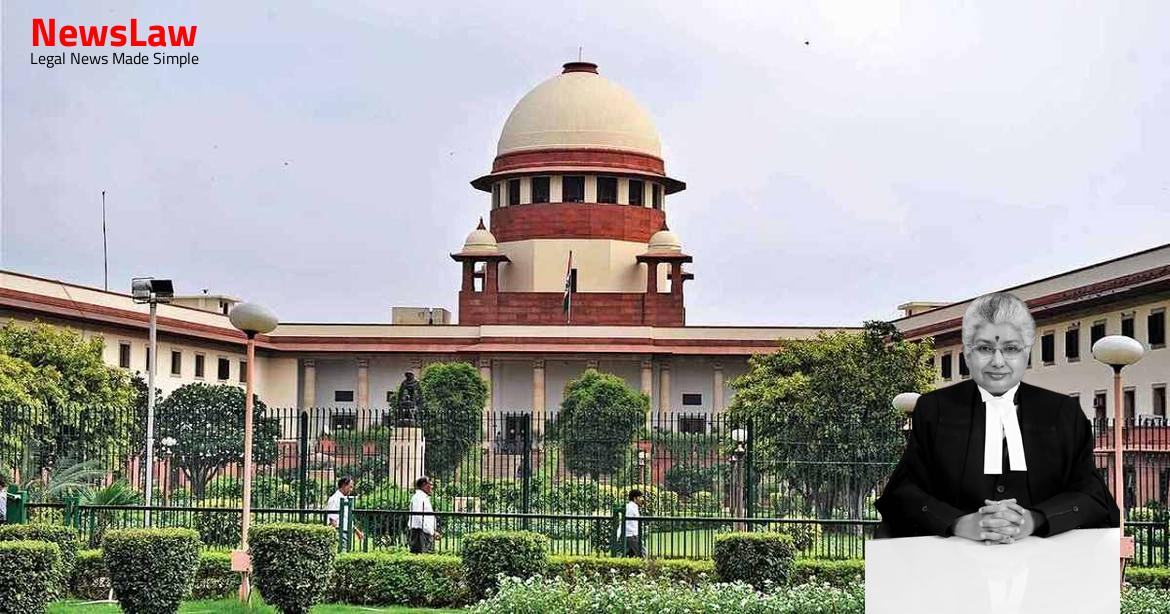Explore a detailed legal analysis of bid evaluation criteria in the context of CGD network authorization. This summary focuses on the court’s assessment of key factors impacting bidding decisions, shedding light on the nuances of regulatory compliance in the bidding process. Stay informed on the latest developments and insights regarding the complex world of bid evaluation criteria in the energy sector.
Facts
- Regulation 5(6)(c) outlines criteria for technical capability in operating and maintaining a CGD network.
- The highest composite scorer for GA 51 was called for a presentation before the Board on 23 August 2018.
- CGD Authorisation Regulations were amended multiple times, the latest being on 6 April 2018.
- Financial bids were opened by the Board on 24 July 2018.
- Bidding process for CGD networks was initiated on 12 April 2018.
- Three Bid Evaluation Committees (BECs) were nominated for evaluating the bids received.
- Bids liable to be rejected due to unreasonably high or low quotes were tabulated.
- Entities were invited to apply for CGD network authorization through a bid document for each Geographical Area (GA).
- Letter of Intent (LOI) was approved for entities in 48 GAs as per the agenda note.
- Technical bid evaluation was summarized and checked by the BEC.
- Census 2011 data was used to determine minimum and maximum limits for bid evaluation.
- Appeals were filed challenging authorizations in GAs 51, 61, and 62 before the Appellate Tribunal for Electricity.
- Regulation 6 outlines the invitation process for CGD network operations in specific cities or GAs.
- Entities with unreasonably high or low PNG connections quotes were called for presentations before the Board.
- Board approved issuance of LOIs to 18 successful bidders for 48 GAs.
- Financial bids of technically eligible bidders were opened between 24 July 2018 and 18 August 2018.
- Various courses of actions were proposed for bid evaluation in different GAs.
- Regulation 5(6)(e) links the minimum net-worth of bidding entities to the population of the GA.
- Addendum-1 clarified procedures for determining unreasonably high or low quotes.
- APTEL pronounced a split decision on appeals filed by Adani Gas Limited and IMC Limited.
- Proceedings were transferred to the Supreme Court for final resolution.
- Data from Census 2011 was used for bid evaluation and performance bond determination.
- Clause 4.4 of Bid Document allows rejection of bids considered unreasonably high or low.
- Addendum-1 to the Bid Document was issued on 31 May 2018.
- Total of 38 entities submitted bids against 86 GAs.
- A bidder is required to quote the transportation rate for CGD not less than Rs 30 per MMBTU for the first contract year
- The weightage ascribed to the transportation rate criterion for CNG is 10%
- Evaluation of bids based on projected number of households in 2026 was specific to only three bidders in GAs 51, 61, and 62
- In GA-62, bids from ten bidders were evaluated with projected households in 2026, except for Torrent Gas Private Limited
- Board rejected H1 bidder for GA 72 due to unreasonably high bid of 220% households
- Appeal No. 292 of 2018 filed by Adani Gas Limited regarding bids exceeding unreasonably high limits
- Rejection of bids without an opportunity to present their case deemed unfair by the Board
- New criteria for the ninth round of CGD bidding include 50% weightage to PNG domestic connections
- The basis for evaluating bids of 79 out of 86 GAs was the 2-100% criterion from the 2011 Census data
- Regulation 7(3) determines the successful bidder based on the highest composite score
- No minimum or maximum limits set for PNG domestic connections in the 2018 amendment
- Bidder to quote transportation rate only for the first year at not less than Rs 2 per kilogram
- Various criteria with weightages including CNG station installations, PNG connections, and steel pipeline lengths
- Board was directed to file an affidavit explaining the bid rejection decisions and high/low quotes basis
- Issues highlighted regarding Board’s reversal of decisions leading to subjectivity and breach of natural justice
Also Read: Interpretation of Parliamentary Privileges: Immunity from Prosecution for Bribery
Issue
- The controversy revolves around the relevance of the 2011 Census data in the bidding process for a certain project.
- The key issue is whether the 2011 Census data should be deemed sufficient and appropriate for use in the current bidding process.
- The argument likely involves discussions on the accuracy, timeliness, and applicability of the 2011 Census data in the context of the project bidding.
Also Read: Legal Analysis on Arbitration Petition Limitation Period
Arguments
- The appellants cannot try to advance their case by relying on decisions taken in relation to separate GAs not currently under challenge
- Calculations made by the appellants regarding growth rate and projected number of households are based on irrelevant factors
- The Board accepted Torrent Gas Limited’s quoted number of PNG connections as reasonable after they explained their methodology
- Criteria known to Torrent Gas during bid submission did not prescribe a maximum number of PNG connections
- No condition in CGD Authorisation Regulations or Bid Document required quoted number of PNG connections to be based on 2011 Census data
- Appellants argue that the Board projected a higher number of households for 2026 due to a higher than actual annual growth rate
- Examples given for high growth rate challenges in Surendranagar (GA-8) and Medchal-Ranga Reddy (GA-72)
- Dr. AM Singhvi, representing Adani Gas Limited, argued that the Board used inflated figures for existing households in calculating growth rate in GA 72
- The 2013 and 2014 amendments to CGD Authorisation Regulations shifted criteria and bidding weightages
- A committee was constituted in 2016 to examine alternative models for bidding criteria for CGD networks
- Adani Gas Limited was not the second or third placed bidder in GA 51 based on the composite score, hence lacks standing to challenge SKN Haryana’s LOI.
- The First Addendum’s Clause 14.2 clarifies that there were no fixed parameters for determining an unreasonably high or low bid, to be assessed on a case-by-case basis.
- The calculation of composite scores in Schedule C(1) reduces bidders’ scores in proportion to the highest bidder’s score; if the 2011 Census data was a hard upper limit, this calculation would be redundant.
- AG & P quoted 11.51 lakh for GA 61, exceeding the 2011 Census figure of 10.06 lakhs, but the state electricity board reported 15.91 lakh households in 2018.
- In GA 37, Indian Oil Corporation bid below the 2% threshold and lost to Bharat Gas Resource Limited, which bid above the threshold. However, Indian Oil Corporation did not contest this decision.
- Each GA is a distinct tender influenced by unique geographical and socio-economic factors.
- The CAGR calculation error of AG & P LNG using overall population growth instead of household growth renders comparisons with other GAs invalid according to the Member Technical’s judgement.
Also Read: Analysis of High Courts’ Jurisdiction and Court Orders Under Article 142
Analysis
- Regulation 7 requires the Board to tabulate and compare all financial bids meeting the minimum eligibility criteria according to the bidding criteria.
- The jurisdiction of the APTEL in hearing an appeal is outlined in Section 33(6) specifying grounds for appeal to the Court under Section 37.
- The Board Note dated 23 July 2018 did not set absolute criteria for bid disqualification based on a 2-100% range
- Calling only the highest composite score bidders to justify their bids did not violate natural justice principles
- Regulation 7 does not link bid evaluation criteria with 2011 Census data
- The Bid Document did not restrict bids based on Census data or set a ceiling for bid evaluation criteria
- The Board had the right to reject unreasonably high or low bids as per Clause 4.4.1
- The Board’s decision-making process was fair and justified in calling for bid explanations from top bidders
- Financial criteria for bidding entities were defined with respect to net-worth, not Census figures
- The Board’s acceptance of bid reasonability based on various methodologies was legitimate
- The final decision on awarding authorisation in GAs 51, 61, and 62 was made by the Board in August 2018
- The power to determine the reasonability of the highest bidder’s quote resided solely with the Board as per Clause 14.2 of the Bid Document.
- The presence and hearing of other bidders was deemed unnecessary as the decision on reasonability was within the Board’s discretion.
- Therefore, the Board had the authority to make a decision on the highest bidder’s quote without consulting other bidders.
Decision
- The pending application(s) will be disposed of.
- The Appeals are dismissed in disagreement with the Chairperson’s opinion.
- The Member Technical’s view to dismiss the appeals is concurred with.
- Transferred Cases No. 27 of 2019 and 26 of 2019 are disposed of.
- There is no order as to costs.
Case Title: ADANI GAS LIMITED Vs. PETROLEUM AND NATURAL GAS REGULATORY BOARD (2020 INSC 199)
Case Number: C.A. No.-003992 / 2019



